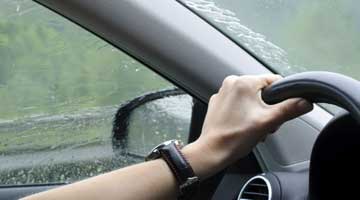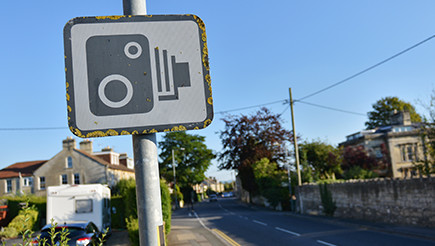Most of us have felt sleepy at the wheel at least once. With around 20% of all major road accidents caused by driver fatigue, and 40% of these involving commercial vehicles, it’s something we all need to take extremely seriously – especially if we spend a lot of our working life in our cabs.
Here are some guidelines for staying alert and driving safely.
The importance of taking breaks
Current EU regulations state that you shouldn’t drive more than nine hours in a day or 56 hours a week. They also recommend a break of a minimum of 45 minutes after four and a half hours on the road. That’s a long stretch, and guidelines in the Highway Code suggest planning in rest stops of at least 15 minutes every two hours, including for daytime journeys. The HSE guide Driving at work contains advice for employers on drivers’ work schedules and breaks as well as how to deliver an effective driving at work policy.
Tips for fighting fatigue
The only real way to combat drowsiness is to sleep. If you can feel yourself actually nodding off, pull over somewhere safe. No destination or deadline is worth the risk. There are, however, a few things you can do to help reduce the risk of fatigue setting in.
- Get a good night’s sleep before you set off
- Avoid eating huge, filling meals that will make you feel more drowsy
- If possible, try to share the driving on night journeys
- Make sure the cab isn’t too warm
- Put something engaging and lively on the radio
- On your break, drink two strong caffeine drinks and doze for 15 minutes
When not to drive
Some medications, including over-the-counter ones, cause drowsiness. If you’re a commercial driver, rethink your duties while you’re taking these. And of course, we all know about the soporific effects of alcohol.
Some people experience sleep disorders such as obstructive sleep apnoea (OSA), which results in disturbed nights. A driver with OSA is more likely to be involved in a road traffic accident due to sleep deprivation. Illnesses of the nervous system such as multiple sclerosis, Parkinson’s and narcolepsy can also cause excessive sleepiness. If you have a condition that causes problems with your sleep, inform the DVLA. To find out more about medical conditions and driving, see these Government guidelines.
At AXA, we know that a day in the life of a van driver isn’t always a smooth ride. Find out more about the stresses and strains of the average UK van driver – and what to do to help – in our video series here.






